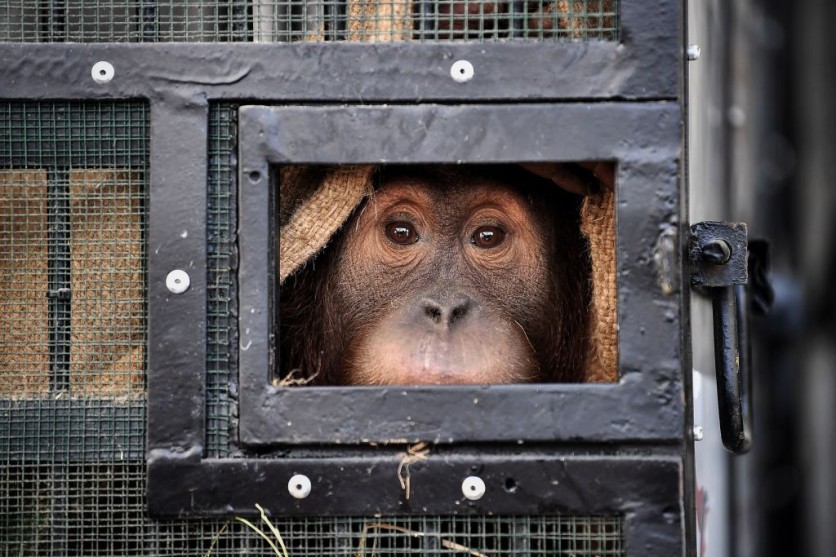The Online Safety Bill, which the UK government is introducing, will include tighter restrictions to counter the increase of animal cruelty content on social media sites.
The removal of such information will be needed from IT firms, or they risk up to £18 million in fines. This comes after a global monkey torture ring was revealed by BBC Eye, raising questions about the extent to which social media is enabling animal brutality.

(Photo: LILLIAN SUWANRUMPHA/AFP via Getty Images) A Sumatran orangutan sits in a cage before being repatriated from Thailand to Indonesia after having been smuggled into the kingdom, at Suvarnabhumi Airport in Bangkok on December 17, 2020.
Finalizing the Bill
This fall, the Online Safety Bill, which attempts to control online material and safeguard users, will become law. Videos depicting animal mistreatment are listed as a "priority offense," ranking them with other serious crimes including revenge porn, child sexual assault, and death threats.
Social media companies will be obligated to proactively address and delete illegal animal cruelty content, failing to do so might result in fines of up to 10% of their annual global sales. This severe action attempts to build a safer internet environment and make tech firms responsible for their material.
Concerning Findings
A global monkey torture network was discovered by BBC Eye's investigation, involving US and UK citizens who paid for and supported films of infant monkeys in Indonesia being killed and tortured. In the US, more than 20 people are still being investigated, while one former member of the US Air Force has been prosecuted.
Three women are now being investigated in the UK, while two men have been jailed in Indonesia.
Corporate Response
While Telegram has declared that moderators cannot actively regulate private groups, YouTube has deleted hundreds of thousands of videos that advocate animal brutality. This emphasizes the continuous difficulty of properly responding to information about animal cruelty on social media.
Michelle Donelan, the secretary of technology, has underlined the need to extend the bill's purview beyond child protection to include the prevention of animal abuse. She did this by highlighting the BBC's investigative work, which exposed the sadistic criminal conduct that is promoted on the internet to regular people.
Support From Groups
To stop the dissemination of images depicting animal mistreatment on social media, the RSPCA and SMACC have backed a proposed change. The change attempts to hold platforms responsible and stop the dissemination of harmful information.
In order to emphasize the interconnectedness of animal welfare concerns in the digital arena, The Dogs Trust hopes that the government will address detrimental pet advertising practices on social media and classified ad sites in the future.
Despite delays and opposition from Silicon Valley big companies, the UK government is determined to safeguard users of the internet from harm. Platforms like WhatsApp, Signal, and iMessage are opposed to giving access to users' private communications, which is the topic of debate.

![Apple Watch Series 10 [GPS 42mm]](https://d.techtimes.com/en/full/453899/apple-watch-series-10-gps-42mm.jpg?w=184&h=103&f=9fb3c2ea2db928c663d1d2eadbcb3e52)



